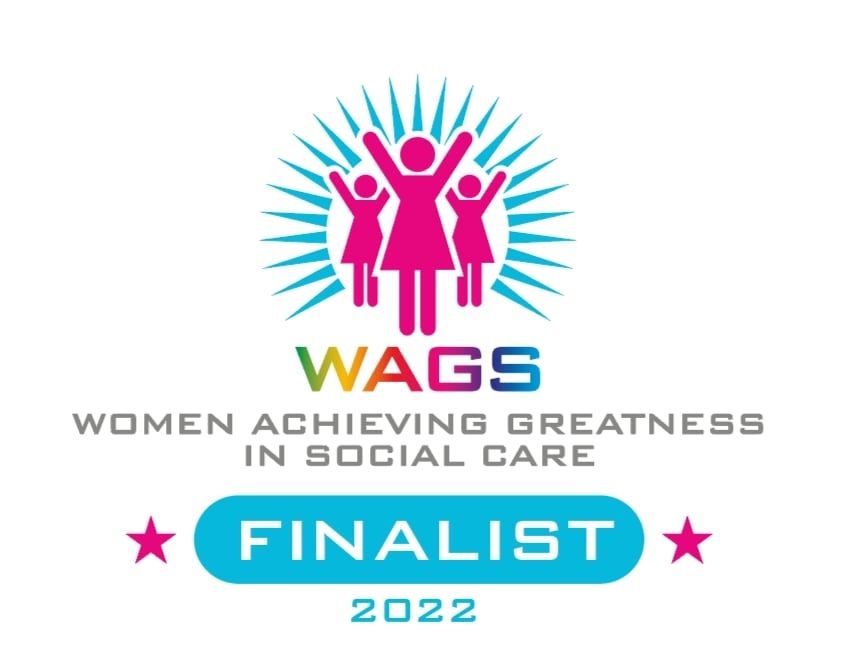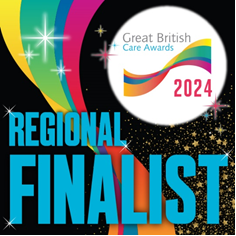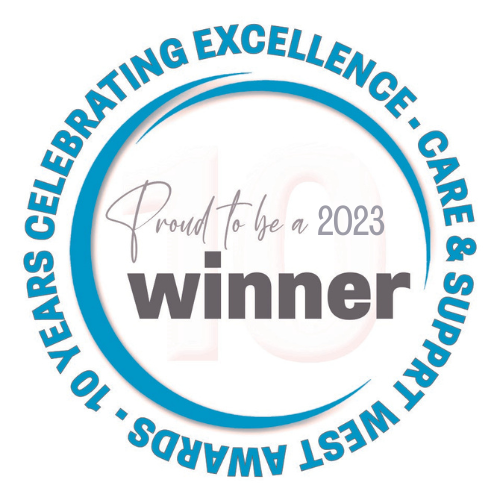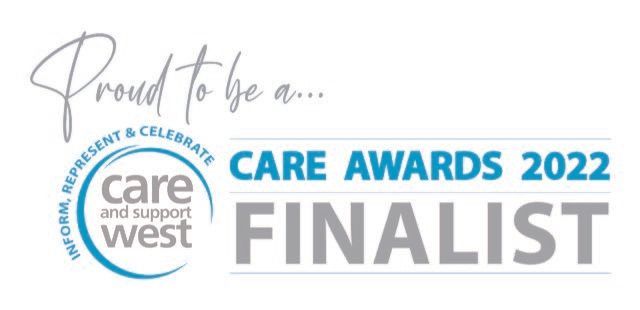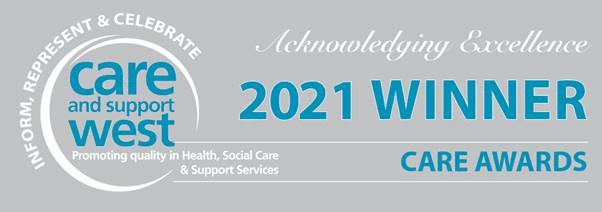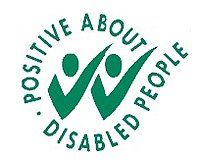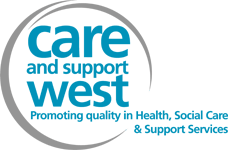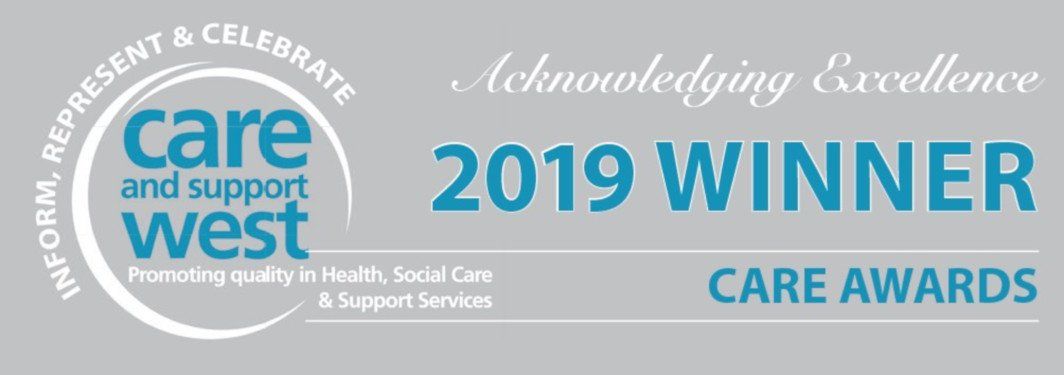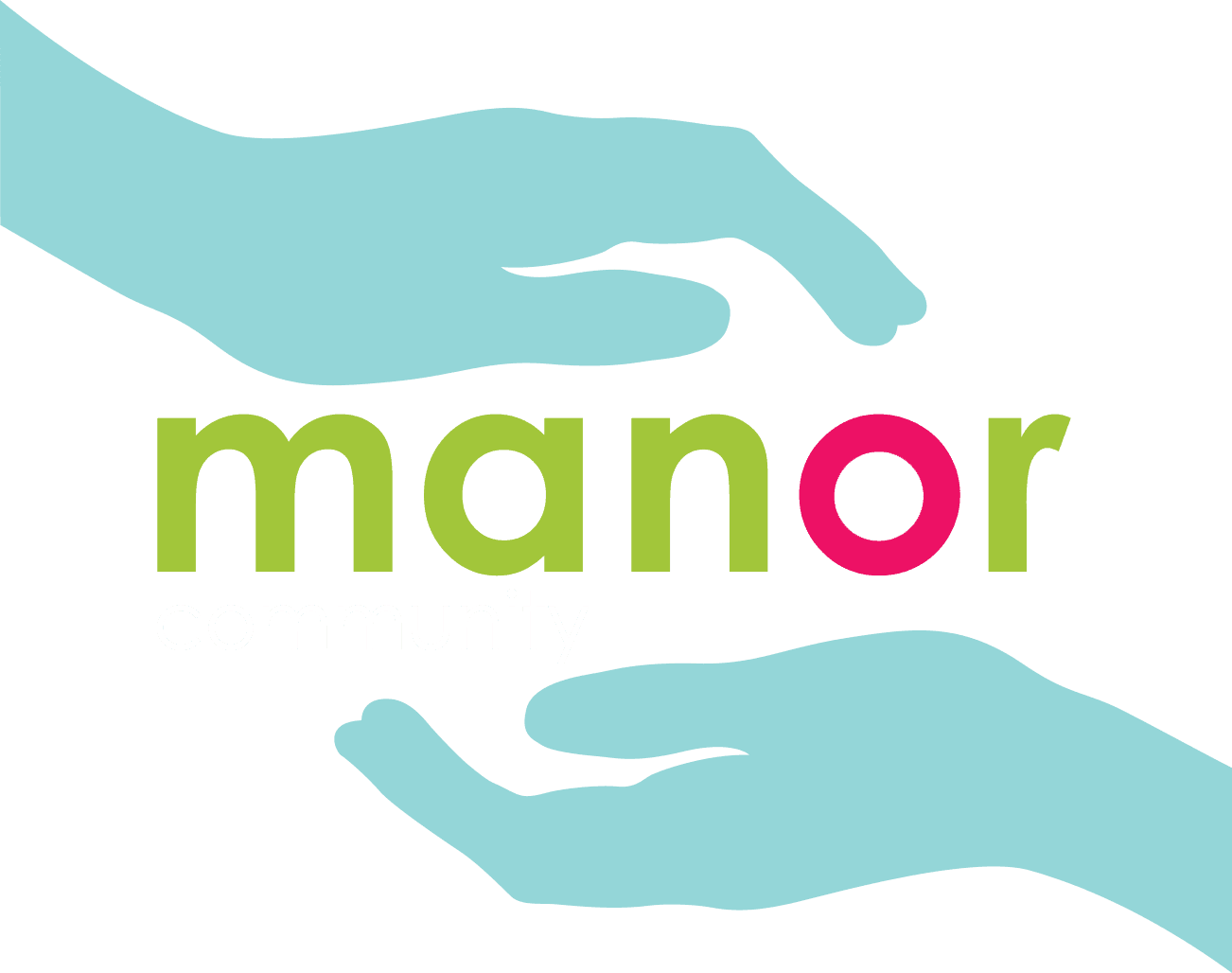Reflections from an Equalities Workshop (updated)
Inspirational ideas to promote and support a more equal workforce

Today (10th April 2019) I attended a round table event on developing practical approaches to improve workforce race equality in social care. The event was held by Skills for Careand led by Karen Linde from the Centre for Citizenship and Community and Roger Kline from Middlesex University Business School and chaired by Skills for Care’s interim CEO Andy Tilden. The workshop was convened in anticipation of research carried out by Roger and Karen on race inequalities within the workforce. It looked at tackling inequalities such as unconscious bias (aka racism) and lack of representation of certain ethnic groups in higher positions.
Initially, whilst I was inspired by being given an opportunity to provide feedback on an important piece of work, I was also worried about being amongst like-minded people and effectively preaching to the converted. However, Skills for Care pulled together a fantastically inspirational group of men and women from various ethnic backgrounds. My biggest regret was that the whole thing wasn’t filmed! (maybe next time?).
One of the most inspiring parts of the session was when Tricia Pereira , Pam Rowe and Sharon Jennings were given the floor. These inspirational women chose a different approach to presenting by holding a discussion about the issues they face and potential solutions. They left a spare seat next to them for members of the audience to join the conversation at any point. So simple, so effective. An exemplary way of showing the power of diversity of thought, practice and perspective.
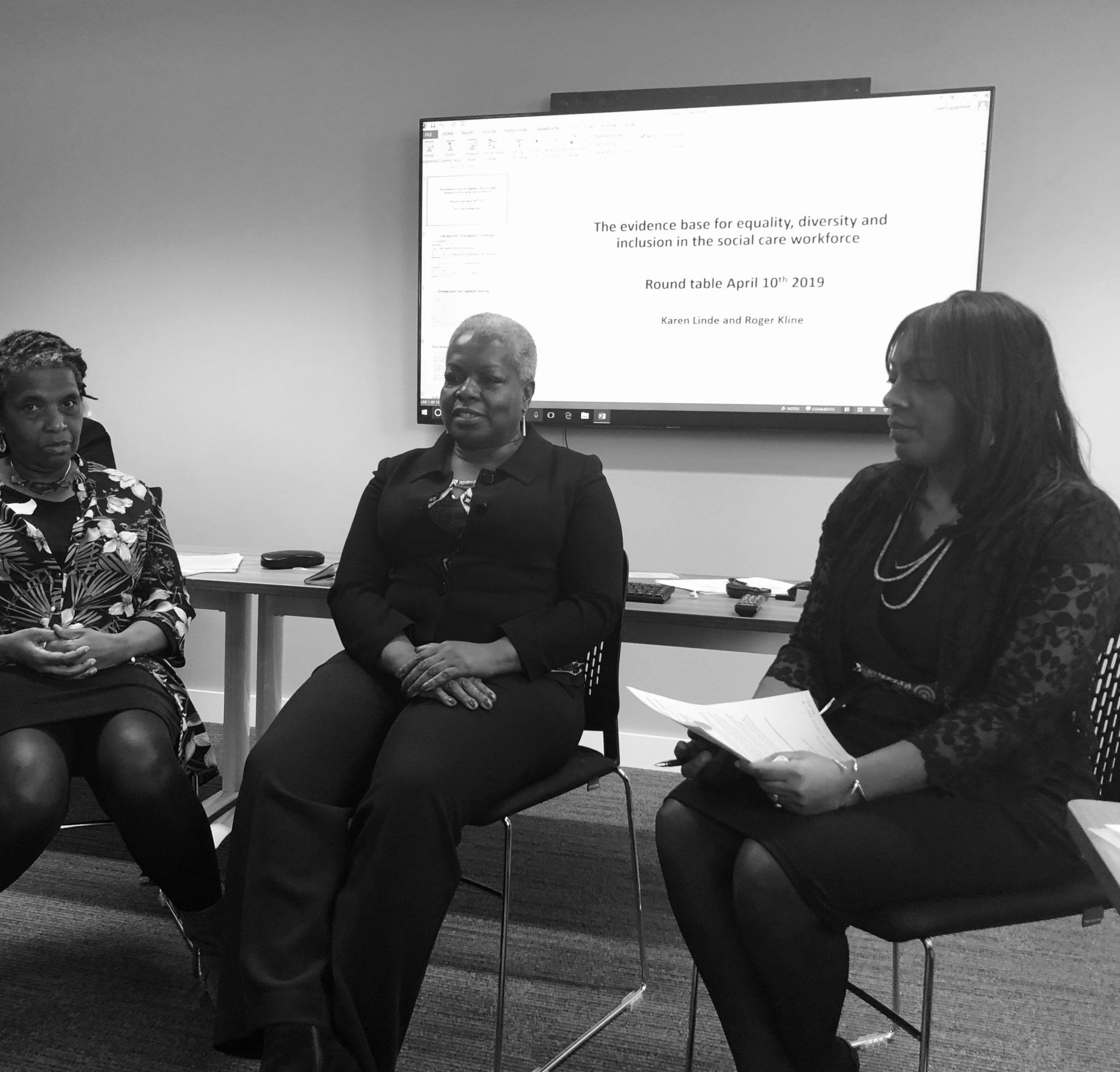
Context
There has been a nudge (rather than a push) on equalities promotion in health and social care in recent years. Skills for Care have found there is a lack of representative diversity in management and therefore launch their Moving Up programme. The Care Quality Commission, through Equally Outstanding , has provided a live equalities document, which is regularly updated with good practice. It also reminds us of the human rights status of equality – well worth tagging to your favourites. Within the NHS (which I am less familiar with) there is the WRES or Workforce Race Equality Standard. I learnt today that the Health Minister Stephen Barclay announced in 2018 that BAME (Black, Asian and Minority Ethnic)representation in senior leadership in NHS should match that across the rest of the NHS by 2028.
A huge task. So, how?
Some of the Issues
Some key issues raised by many reports and largely echoed in today’s forum include:
- Lack of representation
- Institutional bias
- Leading from the top on the issue of equalities rather than from the experiences and knowledge of those effected.
- Lack of confidence of certain groups because of the racism or bias created by the people and structures within organisations and in the sector as a whole.
- There is an interesting point around the effect of the compound bias and racism which people may have faced historically and currently, inside and outside of work. Understanding the effect of this is important.
Solution Ideas - start with co-production
One of the things we at Manor Community have been promoting in care is the concept of co-production. Co-production is often misapplied or misunderstood, but is helpfully promoted by TLAP and SCIE. There is a growing body of literature on co-production. I have listed those I find most helpful at the end of this blog.
Essentially, co-production should involve co-examination of the issues faced, co-creating/co-designing solutions and co-producing what the future should look like. Rather than people from diverse ethnic backgrounds having policies, research and solutions ‘about’
them done ‘to’
them, they
instead create the narrative
, design the solution
and support others through the process. This bottom up approach is similar to the ‘nothing about us, without us’
mantra of the disabled people’s movement. The idea of co-production is hugely applicable in other situations and especially during the discussion around solutions for race inequalities.
So what might this look like?
As a start, potentially something like this:
- Recognising that the BAME group itself is diverse (the term BAME can be contentious but it's the language we currently have).
- Conferences - an appreciation of the value of different ethnicities and their right to be represented at all levels. A headline conference to bring together progressive thought, a celebration of diversity and honest (sometimes hard to hear) experiences.
- Inspection – I added the idea of having CQC include 'Equality' as a 6th KLOE (key line of enquiry) which will be used to rate services. Essentially, like the KLOE ‘well-led’, the idea is that you should not be able to be rated as an 'Outstanding' organisation without being outstanding in the KLOE on equality.
- Appreciative inquiry – something I’m less familiar with but am eager to learn more about
- Recognising the challenges BAME managers face and giving every BAME manager a coach - a point advanced by Cedi Frederick
- Image (challenging perceptions) - Steve Gilbertreminded us that there needs to be better promotion of the great people already in social care. The 56 Black Men campaign by Cephas Williams was mentioned today and hopefully a woman’s version will follow soon. Image is important, it helps others know there is a place for them. It also challenges the ‘savour’ discourse which covers much of the rhetoric around ethnic diversity programmes i.e. “we are helping these groups because without it they wouldn’t be able to achieve”.

- Structural changes - Since care is all about caring, we spend a lot of time on bureaucracy. A different focus and better appreciation of the different ways of delivering a top class service should be encouraged.
Essentially, any change must be led by those affected by it and most roads lead to co-production!
Afterthought

An afterthought and not entirely explored in the workshop is of course funding
. There are, I feel, two important points on this:
Firstly, organisations such as ours have been encouraged and are promoting staff at all levels, to engage in mentoring, coaching, workshops with schools and general engagement with our community on areas of care and equality. However, despite our efforts to do this out of general support for our community, it inevitably puts pressure on all of us
. A conversation needs to be had in terms of how we support organisations financially to provide positive support to their community whilst supporting the training and temporal costs that go behind enabling staff to do this. Often it is labeled as 'social value' or 'volunteering', but it should be appropriately supported. Financial support should also be properly advertised.
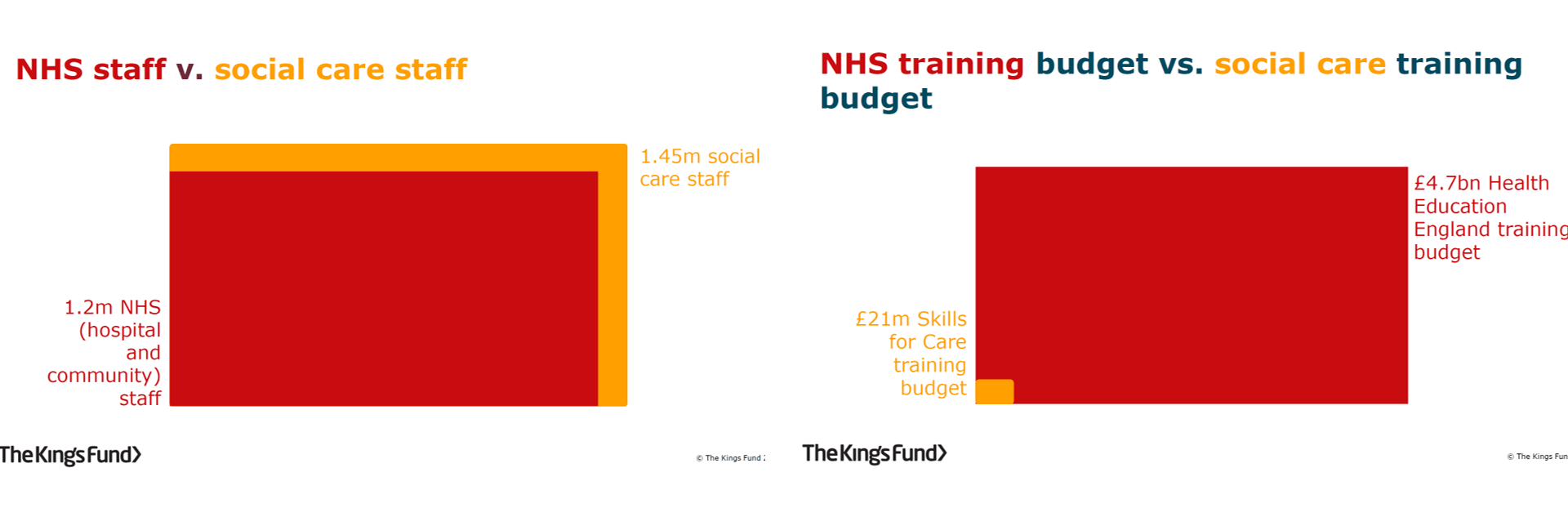
Secondly, towards the end of the workshop I was conscious that we were putting a lot of demands on Skills for Care. It reminded me of a conference I attended at The Kings Fund
last year where Richard Humphries
pointed out on a slide (above) the disparity in funding between Skills for Care and its equivalent in Health (Health Education England). There is a significant lack of parity of esteem (and respect for social care) between the two sectors. Care England discusses this in their blog. Whilst I can't vouch for the figures in the image above, there's a blatant and stark shortfall.
Hopefully the Department for Health and Social Care will support Skills for Care on the projects it and others may plan for promoting equality. We are yet to hear news from the newly appointed All-Party Parliamentry Group (APPG)
for Social Care ( https://appgsocialcare.org.uk/
). Their recent consultation touched on workforce challenges, but not specifically on equalities. If you haven't engaged in the first phase of their consultation
, please do try and do so for the 2nd phase - the deadline has passed but arguably it has been very poorly promoted. Engagement with them is important. We can only hope they will also work closely with Skills for Care, DHSC and others to create a combined and financially supported solution.

Such an inspirational day. Thank you to all involved - looking forward to further insights from Skills for Care, Roger and Karen – keep up the great work!
Sophie Chester-Glyn
@chesterglyn
For the Co-production Curious! a reading list:
NEF, 2005. Co-production: A Manifesto for Growing the Core Economy, London: New Economics Foundation.
NHS, Co-production model
Think Local Act Personal (TLAP), co-production ladder. Its really helpful. Most do co-production in the middle of the ladder, we need to aim for the top.
Durose, C. & Richardson, L., 2016. Designing Public Policy For Co-Production: Theory, practice and change [ebook]. 1 ed. s.l.:Policy Press Scholarship Online. - ( My favourite , but I can't find a freely accessible version. It covers how to put co-production into policy, first few chapters very useful - google scholar has the first few pages )
Vennik, F., Bovenkamp, H., Putters, K. & Grit, K., 2016. Co-production in healthcare rhetoric and practice.
International Review of Administrative Sciences
, 82(1), pp. 150-168. - available here
Manning, J. et al.,
2015. Our Care through Our Eyes’: a mixed methods, evaluative study of a
service user co-produced education programme to improve inpatient care of
children and young people admitted following self-harm
. BMJ Open
, 5(12),
p. p.e009680.
Thomas-Hughes, H., 2018. Ethical ‘mess’ in co-produced
research: reflections from a U.K.-based case study.
International Journal of
Social Research Methodology
, 22(2), pp. 231-242 - whilst it focuses on co-produced research, it is a reminder that co-production is difficult (possibly because it is a new concept) and requires resources
Latest News from Manor Community
Manor Community Blog




